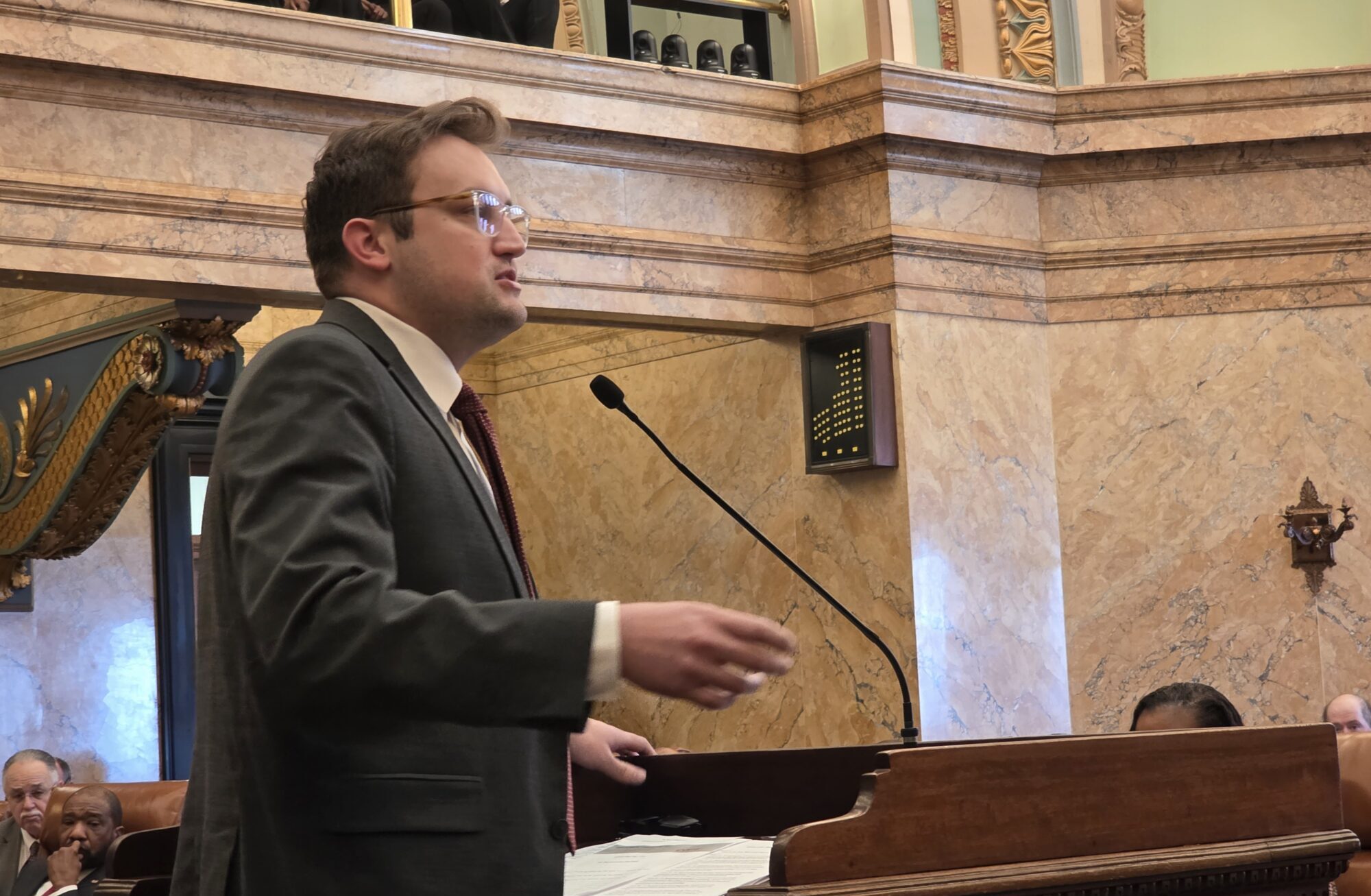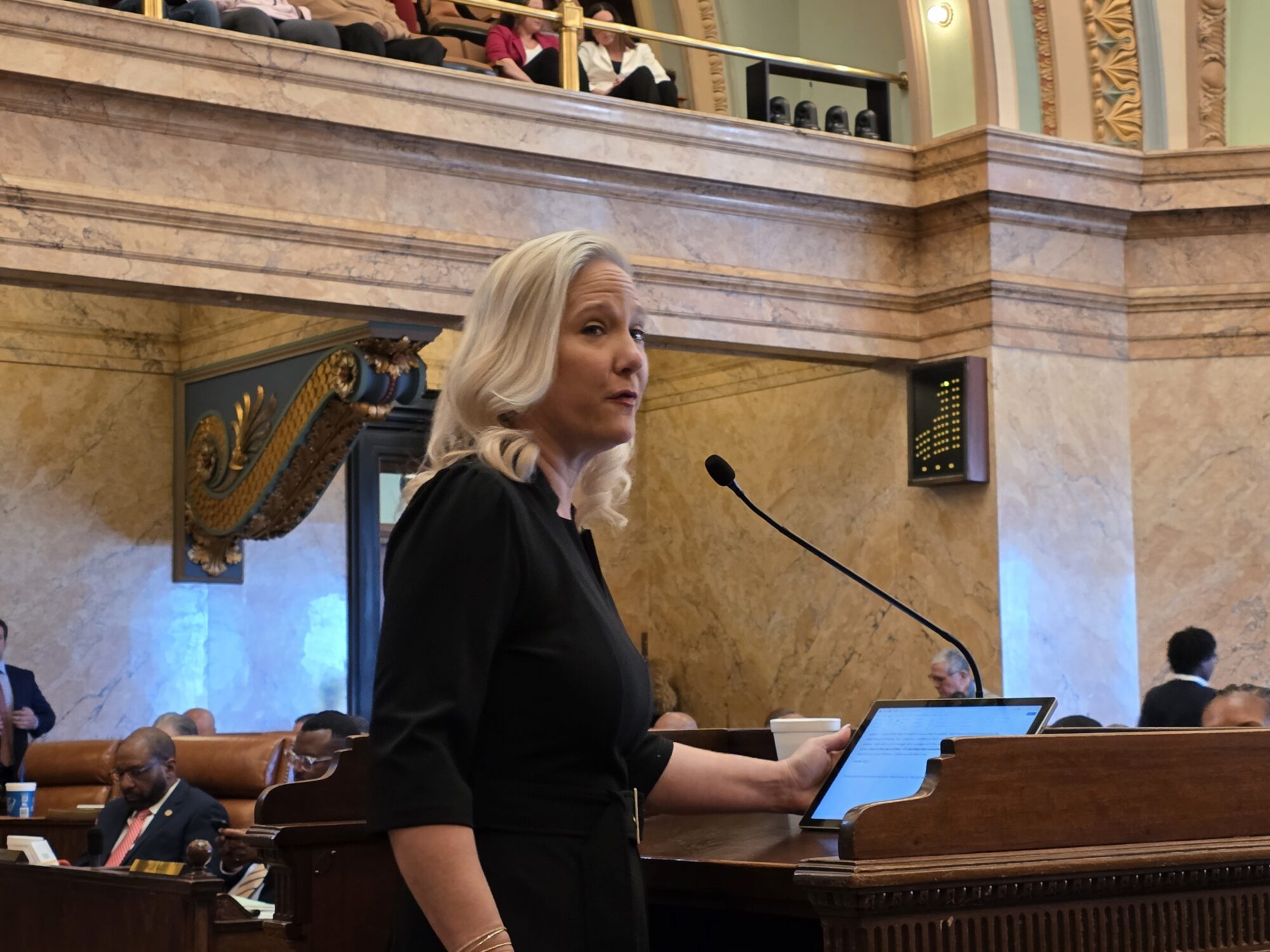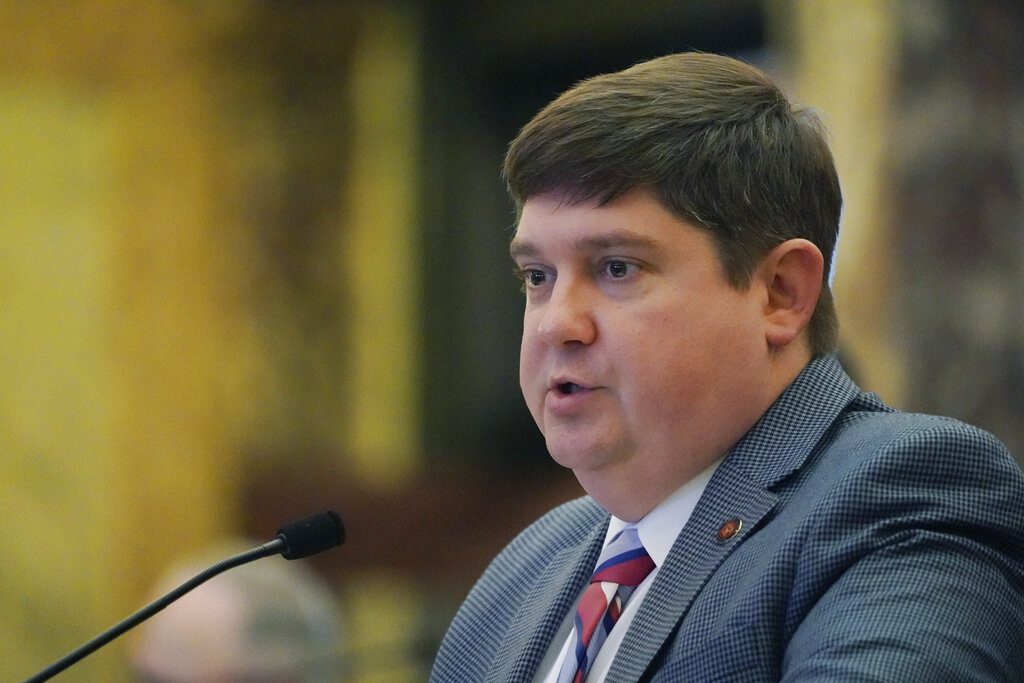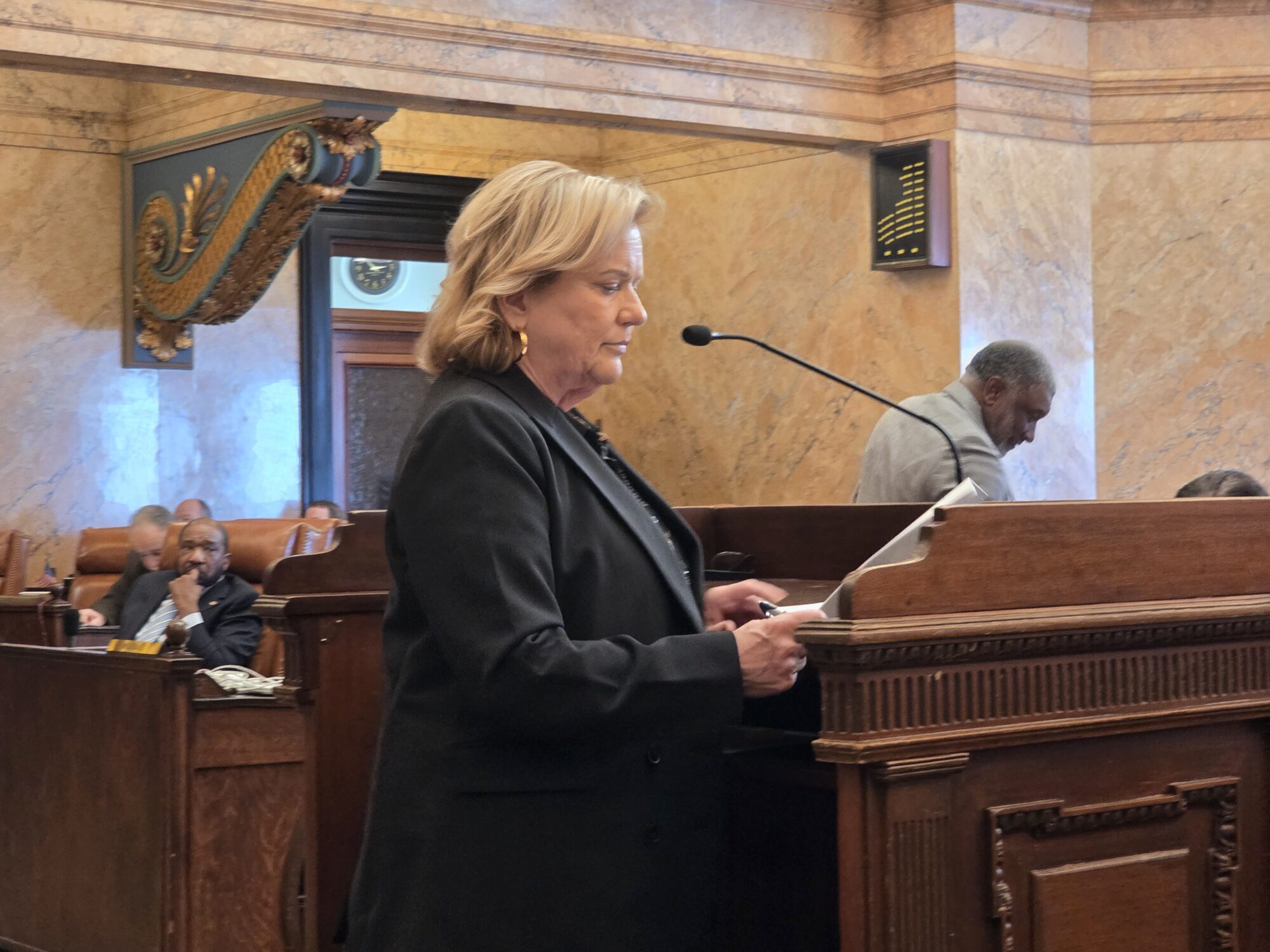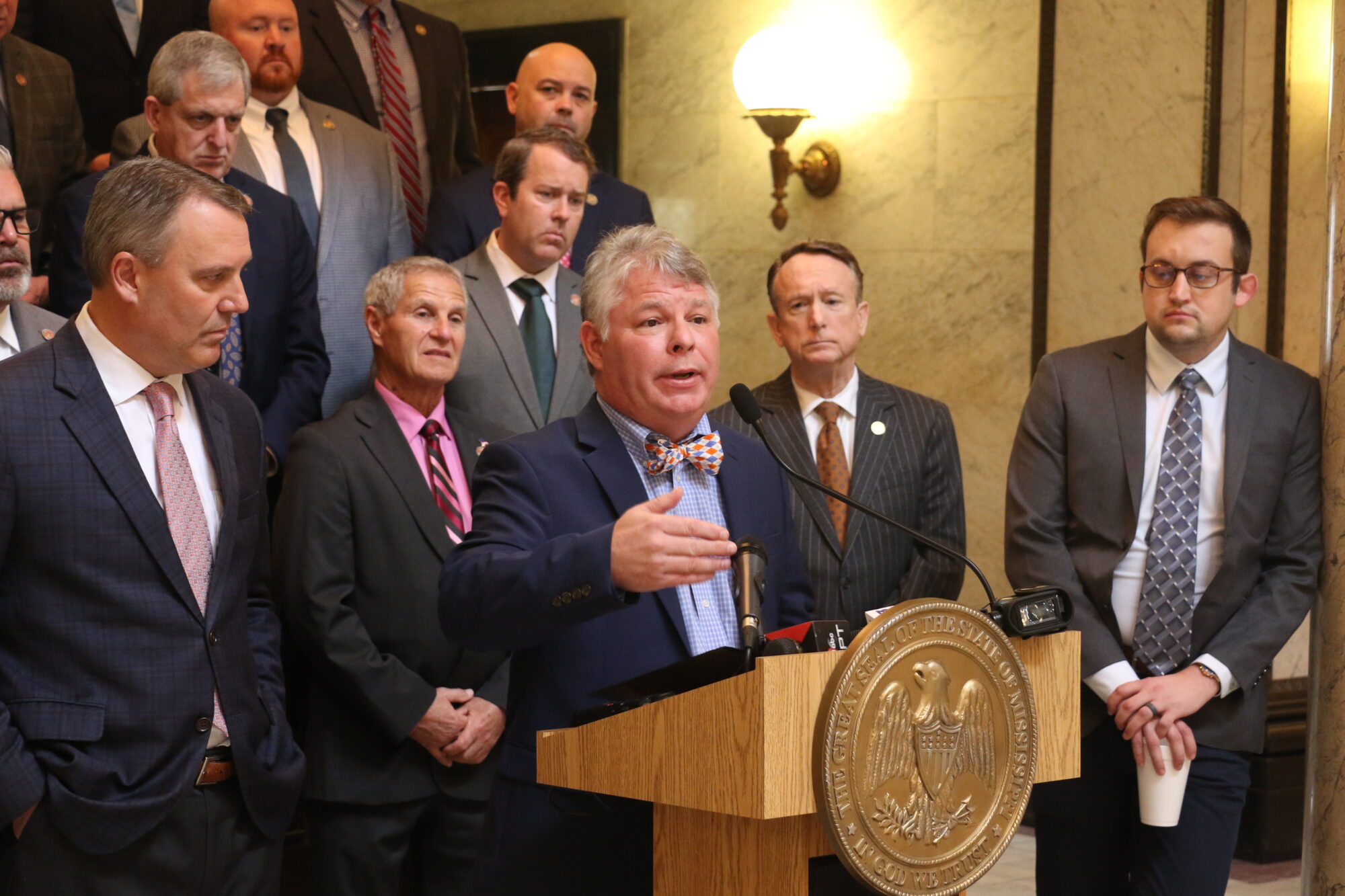
Rep. Rob Roberson addresses the media during a press conference held Thursday about the passage of the INSPIRE Act, a piece of legislation that aims to replace the current MAEP education funding model to provide more education funding in Mississippi. (Photo by Jeremy Pittari | Magnolia Tribune)
- The Mississippi Senate killed the original House proposed education funding plan that would replace MAEP but the House inserted its INSPIRE Act language into the Senate’s bill before sending it back across the Capitol.
The divide between the Mississippi House and Senate on how to provide increased funding for Mississippi’s public education system remains great with nearly a month left in the 2024 legislative session.
On Tuesday, HB 1453, known as the Investing in the Needs of Students to Prioritize, Impact and Reform Education Act, or INSPIRE died in the Senate Education Committee, leaving only one bill still alive this year to address any changes to the existing Mississippi Adequate Education Program, or MAEP.
Senate Education Committee Chair Dennis DeBar (R) has stated publicly that he is not convinced the House’s INSPIRE Act is the best method to fund the state’s education system, choosing instead to offer his own tweaks to MAEP in SB 2332.
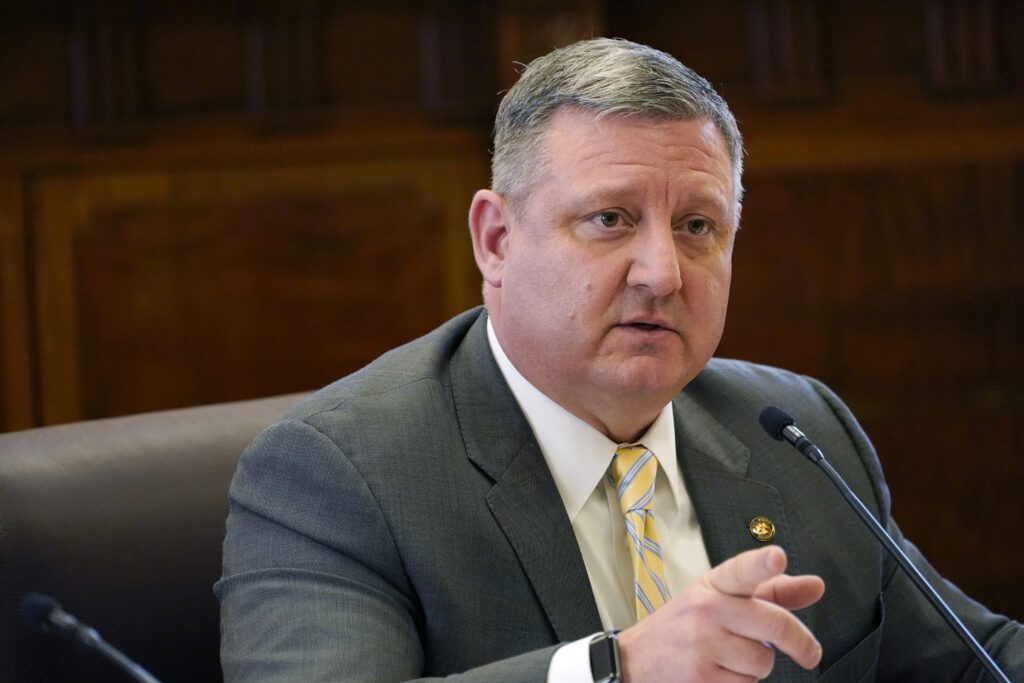
“The Senate has unanimously passed and sent to the House, for two straight years, a bill with tweaks to the current formula with corresponding funding,” DeBar told Magnolia Tribune on Wednesday. “The House has refused to discuss our bills, dismissing them as irrelevant or too complicated. In mid-February, the House unveiled to us a new plan. We are still trying to calculate and fully understand this new plan — not just for this year, but for outyears. We are not going to, as [former U.S. House Speaker Nancy] Pelosi said, ‘Pass it and then see what is in it.'”
DeBar called public education funding “the most significant appropriation in our budget, both in terms of amount and significance.”
“We look forward to the House considering the proposal we have put forward, which has been fully vetted. In the meantime, my intention is to continue to work this session because that is what is good for schools and students,” DeBar said.
While the House bill known as the INSPIRE Act, authored by House Education Committee Chairman State Rep. Rob Roberson (R), didn’t make it out of the Senate Education Committee before the deadline on Tuesday, the plan lives on at least for now.
INSPIRE has become part of DeBar’s bill, SB 2332, due to a strike-all amendment adopted in the House Education Committee which was then passed by the House by a vote of 94-18.
Rep. Roberson said the House will continue working with the Senate in good faith to make schools better.
“We are far from done talking about INSPIRE and the benefits that it will bring for our students. I think once everyone has a chance to look and compare, the Senate will agree to this solution,” Roberson told Magnolia Tribune.
The INSPIRE Act is different from MAEP in that INSPIRE utilizes a weight-based system to provide “full” education funding by attributing weights to demographics school districts measure, such as poverty, special education needs, sparse student populations, and career and technical programs, to name a few.
House leadership has touted the INSPIRE Act’s expected increased funding – about $250 million more in educational funding throughout the state as compared to last year’s K-12 appropriation under MAEP – as a better way to calculate student-based funding needs in Mississippi schools.
By comparison, under DeBar’s Senate plan, the amount of funding was expected to increase by roughly $200 million.
Now, the amended Senate bill with the inserted House language is the only measure on the table within the Legislature that could lead to more funding for K-12 schools this session.
The Senate could concur to the House changes, which is unlikely given the divide between the two chambers, or members could invite conference to work out their differences, a move that appears at present a hurdle of its own.

